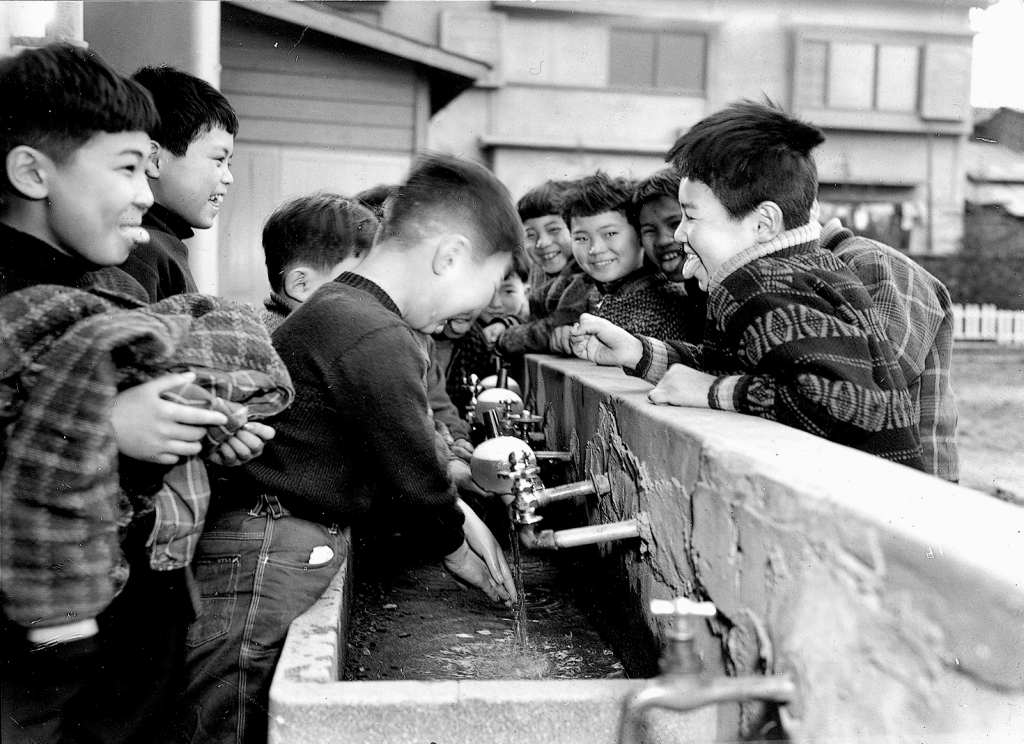Since the early months of the pandemic, hand-washing is listed as one of the top preventive measures against Covid-19, along with frequent use of disinfectants. However, not every country has access to the same resources. According to UNICEF, three out of 10 people worldwide, or 2.3 billion people, don’t have proper facilities to wash their hands with soap and water at home. In lesser developed countries, that number goes up to six out of 10 people.
In Japan, hand-washing became a matter of public health after World War II as the country faced a wave of infections. The government pushed nutrition and hygiene education, sending civil servants to the Japanese countryside to teach residents how to wash their hands and improve the overall sanitation of their washrooms. As this was happening, Japanese company Saraya released its first medicated handsoap, “Shabonette”. The soap became a staple in school and factories’ bathrooms as well as train stations, and quickly, residents of Japan knew the iconic dispenser and green hand soap.

Wash a Million Hands!
At the time there was an epidemic of dysentery in Japan. Saraya founder Shota Saraya first created its disinfecting and sterilizing soap to inspire healthy hand-washing habits. Hand-washing, thought Saraya, was a low-cost but effective option for all Japanese households, rich or poor, to prevent infection and disease.
But the soap alone was not enough. “Even if you have an excellent soap solution,” he says, “it is meaningless if you do not make hand-washing a habit.” From then spawned a nationwide hand-washing awareness campaign that would go on for the following 70 years.
Today, Saraya is the leading Japanese sanitation and hygiene company working towards sustainably improving hygiene. Not only in Japan but also in Uganda. Saraya’s “Wash a Million Hands!” project, organized in collaboration with UNICEF, is an ongoing project the company has been carrying out for the past decade or so. This project not only promotes the construction of sanitation facilities in the country but aims to save lives through hand-washing awareness.

Yashinomi: Japan’s Favorite Eco-friendly Detergent
Saraya is also the maker of Yashinomi detergent, a product that has since become synonymous with eco-friendly detergents in Japan. As you might expect, there is also a social issue behind the development of this Saraya item.
After World War II, Japan saw a period of rapid economic growth. However, this period also saw a rise in pollution across the country. Itai-itai disease (mass cadmium poisoning), Niigata-Minamata disease (a neurological syndrome caused by severe mercury poisoning) and Minamata disease became a cause for concern, with the cause often attributed to severe environmental pollution and wastewater.
Wastewater pollution is caused by the contamination of sources such as lakes and rivers by detergents, shampoos or soaps that are formulated with low-cost synthetic petroleum. To prevent this, Saraya developed a plant-derived detergent using coconut as a base. This detergent is free of fragrance and coloring.
Fragrance-free and coloring-free detergents are hard to find in drugstores and superstores. To avoid using fragrance and coloring agents but still formulate products that are comfortable to use, companies must refine raw ingredients and clear them of impurities. This costs not only money but time as well. Taking this leap of faith 50 years ago was a huge risk for Saraya, but the company was determined to create a product that was not only kind to people’s skin but also to the environment.

The next time you shop for shampoo, soap or detergent, have a look at their ingredients. Be on the lookout for superfluous ingredients and opt for an eco-friendly and gentle option whenever possible.
Find out more about Saraya’s SDG practices: saraya.world/sustainability
This article is a translation and edit of a Japanese article originally published in SDGs Magazine.
Sponsored Post









